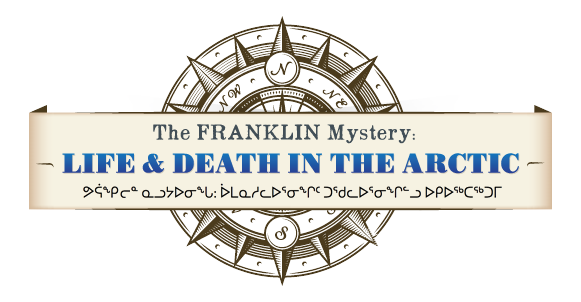McClure's Claim in the North-West Passage (1975)
The day after Pym’s arrival at the ship, McClure left to meet Captain Kellett at Dealy Island, which he did twelve days later. He meant to make arrangements to send his sick men back to England. He had no intention of going there himself. He had seen the North-west Passage and he was determined, if he could, to sail his ship through it! At the worst, he would wait through another winter and then go eastwards on foot to a place from the coast of North Somerset where he knew that ample supplies existed. From there, with luck, he would pick up a whaler that would take him home or, failing that, he would wait for a new relief expedition to come. He drafted a letter to the Admiralty announcing that, among other things, he had discovered ‘the accurate knowledge of that Passage between the Atlantic and Pacific Ocean, which for so many hundred years has baffled maritime Europe.’ He would sail through the channel he had found. Captain Kellett, however, took a different view. He saw the ravages of scurvy among the sick men from the Investigator and ordered a medical inspection of all the crew. The doctors found that all but two of them showed symptoms of the disease. With bitterness in his heart, McClure was forced to abandon his plan. The stores in the Investigator were put ashore, in the hope that they would be useful to the lost Captain Collinson should he pass that way. The colours were nailed to the ship’s masthead. Then she was abandoned.
By the time McClure returned to England at the end of September, the public was informed that he had found the North-west Passage. He was promoted to Captain and given a knighthood. There was, however, another question. Should he be given the reward which Parliament had earmarked for the discoverer of the Passage? The bodies of four white men had been found near the mouth of the Great Fish River (the Back River) four years earlier. They must have belonged to Franklin’s expedition. In that case, they must have completed the circle of sea communication between Barrow Strait and the open waters along the mainland coast which overland explorers had found. Should not their families be given the prizes? Lady Franklin, whose opinion in these matters was heard with deep respect, said she thought that her husband had found another, and more navigable, channel than McClure’s, but that McClure was the first who had his individual way from one ocean to the other. This, she said, might not be the object which had ‘engaged the attention of the civilized world for centuries’ but it was a distinction of which any man might be proud. After this nicely balanced verdict, Parliament voted McClure £10,000. So the riddle of the centuries had at last been solved – or had it? For, after all, the first explorers had gone out to find a commercially viable route. Apparently it did not exist. Later, they had searched for a navigable passage. And, so far, nobody had navigated it!


